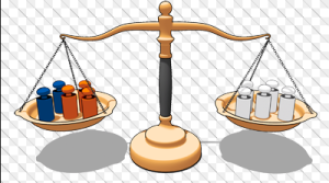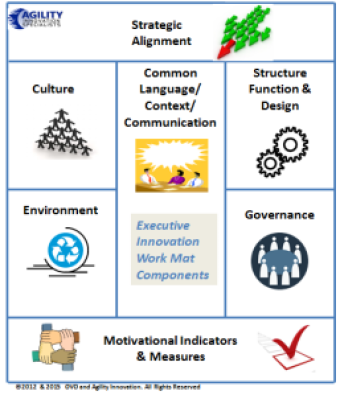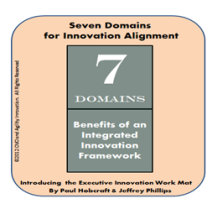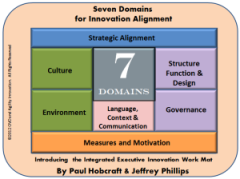 Most organizations are seeking solutions to the necessary connections between Strategy and Innovation. The connection between the two are often broken.
Most organizations are seeking solutions to the necessary connections between Strategy and Innovation. The connection between the two are often broken.
Often it is within the strategies that should be outlined, lies the potential new spaces to play for innovation’s design. Yet how often do we fail to connect the innovation’s we design and execute specifically aligned to the strategic need?
We somehow seem to stay locked in the ‘here and now’ constantly repeating and refining the known and established within our domain of responsibility. Is this because innovation is not at the core of the business as it should be? Often we are inherently resisting to exploring change as it becomes risky and far more demanding. A good strategy, well outlined should encourage innovation and gain engagement but it can equally determine how we break down our imposed boundaries by its strategic intent, to encourage exploring and extending on what we know into the what we need to know. Strategic intent informs innovation.
If you have a clear strategic understanding of the needs of the business you are getting more of the understanding of where-to-play and how-to-win in your innovation activities and market investment. It is making these strategic connections that is giving innovators a better chance to deliver back concepts that offer alignment to this strategic need. Investing in this understanding and alignment should never be understated. The time invested, allows for the innovation investments to do their part in supporting the business and feeding it with the growth options required, or highlighting where the possible gaps might be, for additional investment or M&A activity, to accelerate this and bring-in fresh innovating momentum.
Continue reading “The Essential Connection Between Strategy and Innovation”








